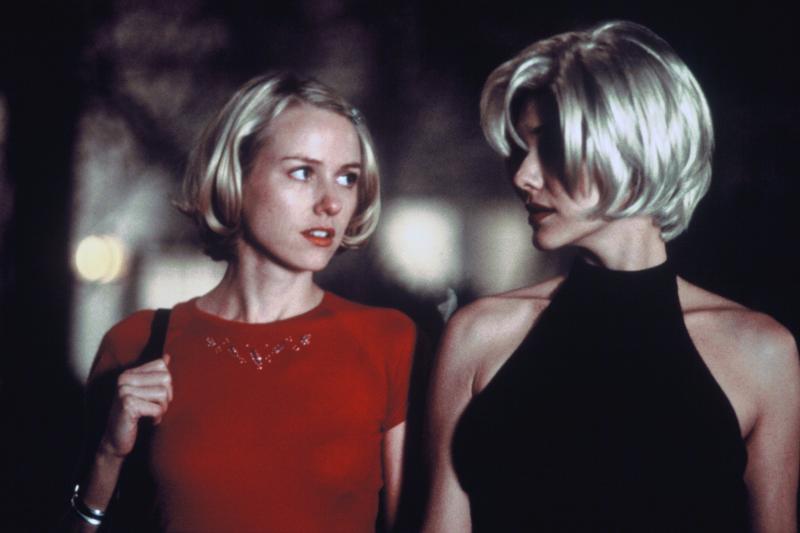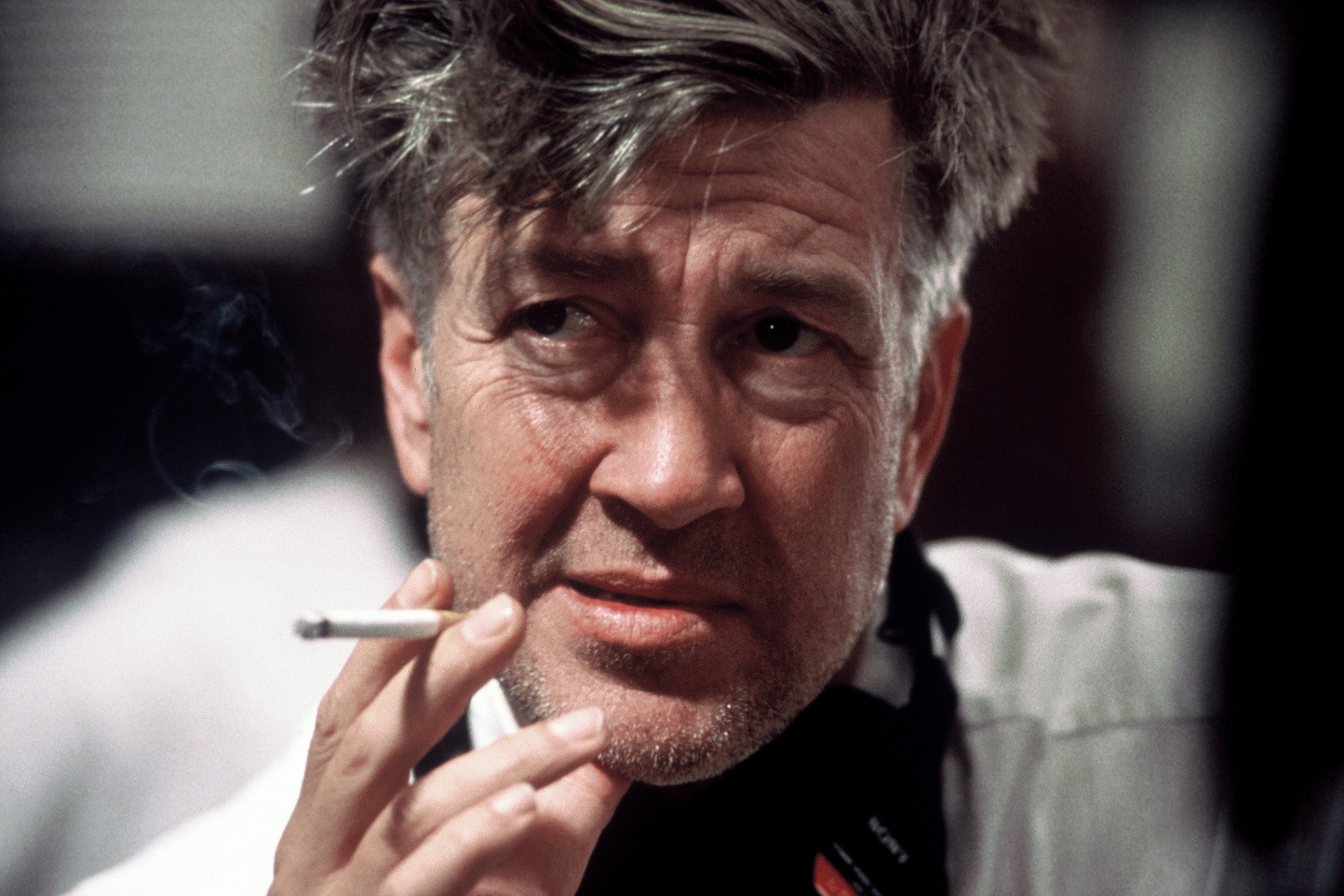DVD/Blu-ray: Mulholland Drive | reviews, news & interviews
DVD/Blu-ray: Mulholland Drive
DVD/Blu-ray: Mulholland Drive
Restoration of Lynch's Hollywood enigma retains its haunting depths

David Lynch’s Hollywood horror film is casually stripped here of what seemed fathomless mystery back in 2001. Former Cahiers du Cinema editor Thierry Jousse kicks off a packed extras disc by using Lynch’s 10 clues on the original DVD case to easily decode its otherwise utterly disorienting last 30 minutes.
Finding an earthier film noir in Lynch’s Chinese box, rooted in Watts’ later, degraded character Diane as she orders a hit on haughty star Camilla (Harring), the lover who’s leaving her and her own acting career in the dust, is a reading which sees the preceding two hours as Diane's guilty dream. But it can’t account for the sucking vertigo of crucial scenes: the nightmare eruptions and gnomic absurdities, the glamour which glows from Harring, or the similar erotic heat which coats her and Watts’ characters long before their justly famous love scene. Cameos portraying grotesque Hollywood relics and studio heads compete with sunny beauty that's prone to curdle. The half-buried corpse of the pilot for the Twin Peaks-style series which constitutes most of this footage - rejected by NBC, Lynch recalls, by an executive who watched it on a small TV screen while making morning phone-calls - is also vital. Tendrils of plot and characters reach out emptily for further episodes that never were.  Jousse’s theorising is among disc extras first used in StudioCanal’s 2010 Blu-ray release, which also include the thoughts of director Richard Kelly, whose Donnie Darko opened almost simultaneously (and whose later The Box awaits this sort of lavish reappraisal). The addition of an interview which reunited Lynch (pictured above) and Watts for the 2015 Criterion release gets nearer to Mulholland Drive’s heart. Both seem touched by what they did for each other, Watts most of all, as she recalls the decade of rejection she had already endured in Hollywood. She knew Mulholland Drive as a road she had felt like swerving off. The film stripped back the carapace that had covered her talent.
Jousse’s theorising is among disc extras first used in StudioCanal’s 2010 Blu-ray release, which also include the thoughts of director Richard Kelly, whose Donnie Darko opened almost simultaneously (and whose later The Box awaits this sort of lavish reappraisal). The addition of an interview which reunited Lynch (pictured above) and Watts for the 2015 Criterion release gets nearer to Mulholland Drive’s heart. Both seem touched by what they did for each other, Watts most of all, as she recalls the decade of rejection she had already endured in Hollywood. She knew Mulholland Drive as a road she had felt like swerving off. The film stripped back the carapace that had covered her talent.
“You took all that crap away from me that told me I was no good,” she tells Lynch, almost in tears. An audition scene in which Betty melts the old stagers around her with the heat of her talent and desire is her favourite. No wonder. Lynch loves the “yearning to express yourself” massed in Hollywood, and Mulholland Drive is both his love letter and tombstone to the town’s delirious psychic energy, and human cost. Watts and Harring were already considered too old by NBC. Their thwarted longing, residual innocence and grasping at salvation by this film powers its opaque vision.
The future of Arts Journalism
You can stop theartsdesk.com closing!
We urgently need financing to survive. Our fundraising drive has thus far raised £49,000 but we need to reach £100,000 or we will be forced to close. Please contribute here: https://gofund.me/c3f6033d
And if you can forward this information to anyone who might assist, we’d be grateful.

Subscribe to theartsdesk.com
Thank you for continuing to read our work on theartsdesk.com. For unlimited access to every article in its entirety, including our archive of more than 15,000 pieces, we're asking for £5 per month or £40 per year. We feel it's a very good deal, and hope you do too.
To take a subscription now simply click here.
And if you're looking for that extra gift for a friend or family member, why not treat them to a theartsdesk.com gift subscription?
more Film
 London Film Festival 2025 - a Korean masterclass in black comedy and a Camus classic effectively realised
New films from Park Chan-wook, Gianfranco Rosi, François Ozon, Ildikó Enyedi and more
London Film Festival 2025 - a Korean masterclass in black comedy and a Camus classic effectively realised
New films from Park Chan-wook, Gianfranco Rosi, François Ozon, Ildikó Enyedi and more
 After the Hunt review - muddled #MeToo provocation
Julia Roberts excels despite misfiring drama
After the Hunt review - muddled #MeToo provocation
Julia Roberts excels despite misfiring drama
 Ballad of a Small Player review - Colin Farrell's all in as a gambler down on his luck
Conclave director Edward Berger swaps the Vatican for Asia's sin city
Ballad of a Small Player review - Colin Farrell's all in as a gambler down on his luck
Conclave director Edward Berger swaps the Vatican for Asia's sin city
 London Film Festival 2025 - Bradley Cooper channels John Bishop, the Boss goes to Nebraska, and a French pandemic
... not to mention Kristen Stewart's directing debut and a punchy prison drama
London Film Festival 2025 - Bradley Cooper channels John Bishop, the Boss goes to Nebraska, and a French pandemic
... not to mention Kristen Stewart's directing debut and a punchy prison drama
 London Film Festival 2025 - from paranoia in Brazil and Iran, to light relief in New York and Tuscany
'Jay Kelly' disappoints, 'It Was Just an Accident' doesn't
London Film Festival 2025 - from paranoia in Brazil and Iran, to light relief in New York and Tuscany
'Jay Kelly' disappoints, 'It Was Just an Accident' doesn't
 Iron Ladies review - working-class heroines of the Miners' Strike
Documentary salutes the staunch women who fought Thatcher's pit closures
Iron Ladies review - working-class heroines of the Miners' Strike
Documentary salutes the staunch women who fought Thatcher's pit closures
 Blu-ray: The Man in the White Suit
Ealing Studios' prescient black comedy, as sharp as ever
Blu-ray: The Man in the White Suit
Ealing Studios' prescient black comedy, as sharp as ever
 The Woman in Cabin 10 review - Scandi noir meets Agatha Christie on a superyacht
Reason goes overboard on a seagoing mystery thriller
The Woman in Cabin 10 review - Scandi noir meets Agatha Christie on a superyacht
Reason goes overboard on a seagoing mystery thriller
 London Film Festival 2025 - crime, punishment, pop stars and shrinks
Daniel Craig investigates, Jodie Foster speaks French and Colin Farrell has a gambling habit
London Film Festival 2025 - crime, punishment, pop stars and shrinks
Daniel Craig investigates, Jodie Foster speaks French and Colin Farrell has a gambling habit
 I Swear review - taking stock of Tourette's
A sharp and moving tale of cuss-words and tics
I Swear review - taking stock of Tourette's
A sharp and moving tale of cuss-words and tics
 A House of Dynamite review - the final countdown
Kathryn Bigelow's cautionary tale sets the nuclear clock ticking again
A House of Dynamite review - the final countdown
Kathryn Bigelow's cautionary tale sets the nuclear clock ticking again

Add comment